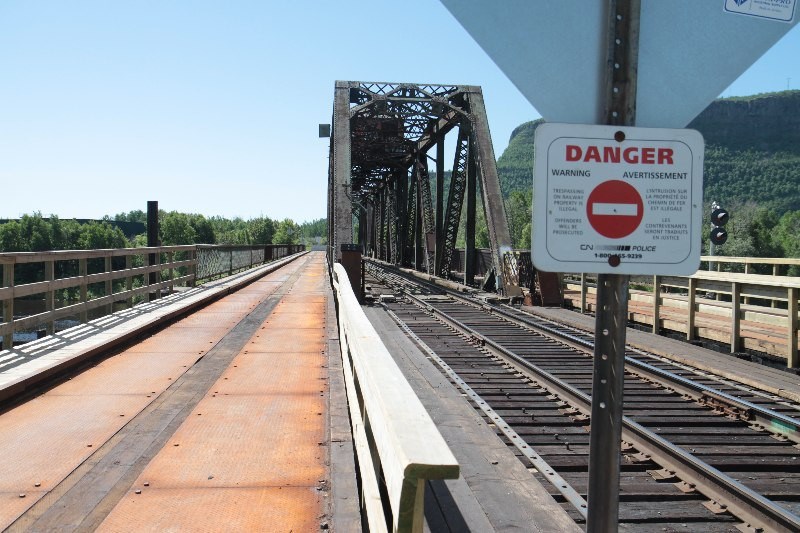THUNDER BAY -- The city has rejected CN's offer over the James Street swing bridge.
The company made its most recent offer last week with a Tuesday deadline that would have re-opened the bridge to vehicular traffic by sharing the rail portion of the bridge. CN was willing to pay 50 per cent of the costs, up to $1.5 million, to get the plan moving.
But that came with strings attached -- the city would have had to renegotiate a 1906 agreement that says the company must maintain the bridge in perpetuity. The renegotiation of that agreement was something mayor Keith Hobbs and city manager Tim Commisso said council was unanimously against.
"This is now a legal file however we are open to suggestions by CN to move this forward if possible," Hobbs said.
"I don't like going to arbitration or to court to settle issues. As long as they're talking with us there's hope but it's faint right now."
Litigation could take months or years but Hobbs said it's about what's right. Commisso said at the heart of it is that CN wants to back out of an agreement it made with the city. That sets a bad example for how the city does business.
"At the end of the day it's a contract that a company has with the city to maintain a bridge in perpetuity and they don't get to decide what perpetuity is," he said.
Commisso and Hobbs couldn't say what the legal costs have been to this point but say it's well under the $1.5 million that could've been used to re-open the bridge.
"We're not going to back down from big corporations just because they have deep pockets and they're going to try and bully a municipality," Hobbs said.
In the meantime though people will have to use Highway 61 to access Fort William First Nation, something Hobbs and chief Georjann Morriseau have raised safety concerns over.
For Morriseau, heading to litigation means her community needs to prepare for years before that bridge could re-open.
"It's going to be very difficult for both communities to wait that two, three years for a decision to be rendered on that 1906 agreement," she said.
What's worse is that while Fort William First Nation is the most impacted, the community is sidelined to observer status because not only did the agreement exclude the people then, it also displaced their homes and burial grounds to put the railway in. While she agrees with the city that CN has a legal obligation to open the bridge, her community will bear the brunt of the process.
"This is somewhat salt in the wound I would say because now the bridge is closed and our community is being impacted (by the 1906 agreement) once again," she said.
In a statement CN said it regrets the city's decision.
"Our offer provides a practical, immediate solution that would avoid years of costly litigation which will not resolve the access issue," it states.
"We regret that the City’s decision will continue to inconvenience thousands of Thunder Bay residents."
All sides have said they're still open to negotiations.
